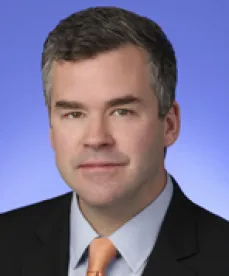The tribal payday lending business finds itself facing a flurry of class action lawsuits and state crackdowns painting the lenders as loan sharks preying upon vulnerable consumers with usurious rates and fees. The tribal payday lenders respond that they are immune from state regulation, service a legitimate market need, and generate much-needed jobs and income for Indian tribes.
Tribal payday lenders purportedly originate loans over the Internet from within Indian Country, claiming that tribal sovereignty and immunity from suit allow them to circumvent state consumer protection laws capping interest rates. The loan agreements generally specify tribal jurisdiction and individual arbitration of disputes and defaults, preventing borrowers from escaping the debts in state courts. Fees and interest rates on these loans can reportedly reach an effective APR of 500%.
A federal class action suit filed against Western Sky Financial, a South Dakota lender owned by a Cheyenne River Sioux member, and other payday lenders demonstrates the profitability of the business and the borrowers’ difficulty escaping the cycle of debt. North Carolina resident Thomas Brown, a disabled veteran and named plaintiff in the litigation, initially borrowed $2,600 from Western Sky. Western Sky immediately withheld $75 from the loan as an origination fee. The repayment terms required Brown to make 48 monthly payments at an effective interest rate of 273% resulting in total payments of $14,102.87 – more than five times the $2,525 Brown received. Western Sky accessed Brown’s bank account, into which his military disability income is directly deposited, and directly debited the loan payments.
In New York and most other states, these expensive loans violate state law. Loans under $250,000 originated by non-bank lenders with interest rates exceeding 16% are illegal under New York’s civil statues, and rates over 25% are criminal violations. The New York State Department of Financial Services has aggressively moved to stop Internet payday lenders by blocking their access to the Automated Clearing House banking network that processes the loan transactions. In August, Superintendent Benjamin Lawsky sent a letter to Bank of America, Capital One, Wells Fargo, and other major banks asking for help “to stamp out these pernicious, illegal payday loans in New York.” The banks have largely complied, leaving the lenders with no access to borrowers’ bank accounts. This has driven many Internet lenders like Western Sky to close their operations and lay off employees.
New York has also filed a petition in state court against Western Sky Financial, CashCall, and their respective owners for civil and criminal violations of New York’s usury laws. The State asks for an injunction preventing the companies from conducting business in New York or enforcing loans to New York customers and directing the companies to return excessive fees to those customers and report to credit agencies that the loans they originated are invalid. Despite the lenders’ assertions that they are tribally owned and operated, the State alleges that Western Sky Financial, an entity owned by a tribal member, immediately sold each loan to WS Financial and CashCall, both off-reservation non-Indian owned entities, to service the loans.
In August, Oklahoma’s Otoe-Missouria Tribe, Michigan’s Lac Vieux Desert Band of Lake Superior Chippewa Indians, and several tribal payday loan companies operating under the protection of those tribes sued the New York State Department of Financial Services for an injunction enjoining the Department from pressuring banks to reject their transactions. The Tribes argue that their ability to conduct lending is a matter of “economic and social survival,” that lending is an economic development activity over which tribes maintain inherent sovereignty, and that Congress has expressly exempted Indian tribes from state regulation in the Dodd-Frank consumer protection legislation.
In 1998, the Supreme Court held in Kiowa Tribe of Oklahoma v. Manufacturing Technologies that Indian tribes are immune from suit absent Congressional authorization or waiver by the tribe. The Court refused to “confine immunity from suit to transactions on reservations and to governmental activities,” holding that tribes could not be sued regardless of where the tribal activities occurred. However, the Court also recognized that while states may not sue tribes directly, they may tax or regulate tribal activities occurring within the state but outside Indian Country. Under this precedent, it appears to be within the rights of New York to, in Superintendent Lawsky’s words, “choke off” tribal lending activities when those activities violate state consumer protection laws by preventing their access to banking networks. It remains to be seen whether the Supreme Court of the State of New York will find jurisdiction over the State’s civil and criminal allegations against tribally-owned Western Sky Financial.
The lending tribes have formed an advocacy group called the Native American Financial Services Association “to protect and advocate for Native American sovereign rights and enable tribes to offer responsible online lending products,” which called New York’s actions “a threat to all natives.” The advocacy group points out that many tribes are at a geographical disadvantage due to their remoteness from urban markets that could support a gaming facility and that online lending is a “lifeline” for these tribes.
Oregon Senator Jeff Merkley is poised to introduce a bill enabling states to take their complaints about tribal leaders directly to the federal Consumer Financial Protection Bureau. Because Congress has plenary power over Indian affairs, federal legislation could quickly resolve the ambiguity regarding the application of state consumer protection laws to tribal companies operating from within Indian Country conducting business over the Internet. Once Merkley’s bill is introduced, it will be considered in parallel with the question of the role of Indian tribes in pending legislation to legalize certain forms of Internet gaming.




 />i
/>i
